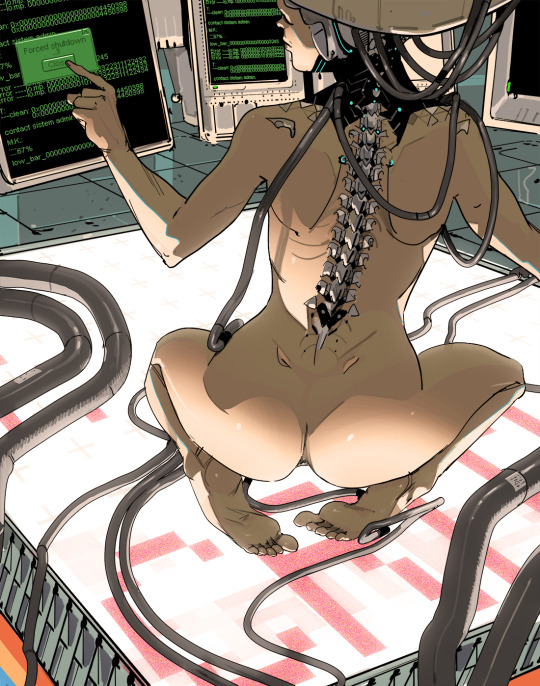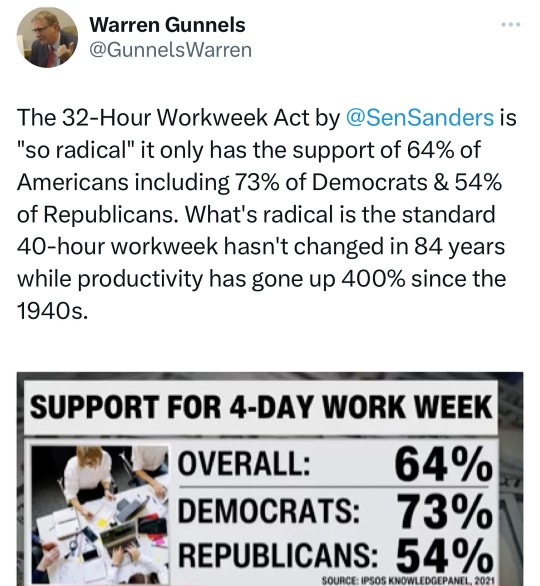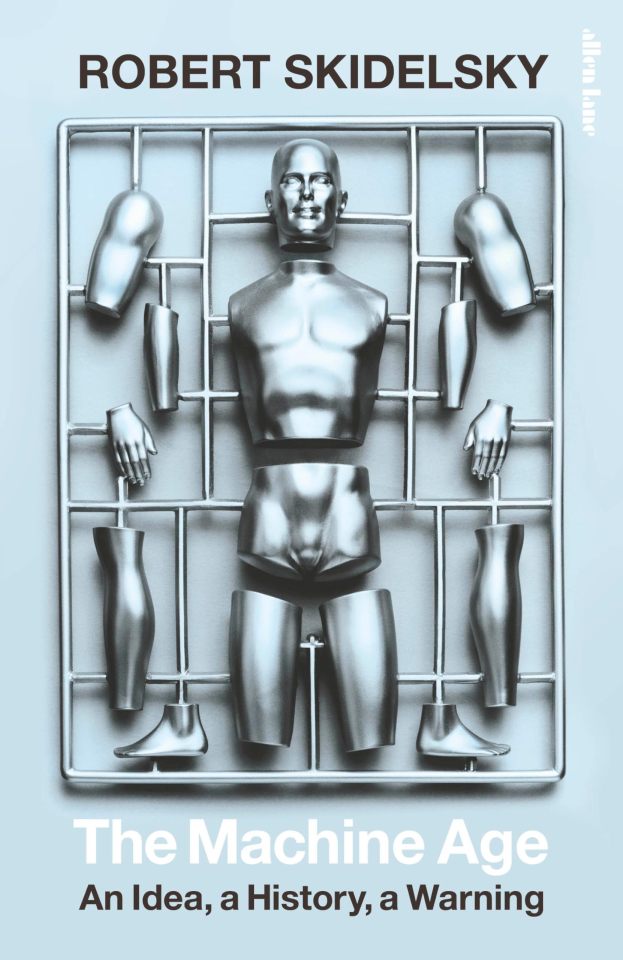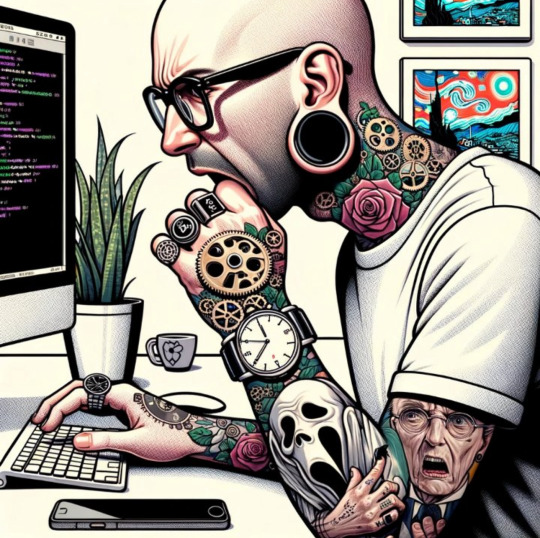#Artificial intelligence automation
Explore tagged Tumblr posts
Text
#AI agents in business#Business automation with AI#Future of business automation#AI-powered business solutions#Smart agents for business processes#Artificial intelligence automation#Role of AI in enterprises#AI for customer support#AI in digital transformation
1 note
·
View note
Text
#ai automation#artificial intelligence automation#intelligent automation#robotic process automation rpa
0 notes
Text
Revolutionizing Automation: The Role of Chatbot Artificial Intelligence in Automation Switch

Introduction:
In the dynamic realm of technology, the rise of automation has become a defining feature of progress. At the forefront of this movement is Automation Switch, a venture spearheaded by Michael Babs, a seasoned Computer Engineer with an extensive background in product design, visual communication, and cloud computing. Michael's wealth of experience extends across renowned brands like Conde Nast, encompassing publications such as Vogue, Wired, GQ, AD, and Arstechnica. Additionally, he has played pivotal roles in innovative startups in the blockchain sector, including Blockdaemon, and the Artificial Intelligence domain, with Human.ai.
The Birth of Automation Switch:
Founded by Michael Babs, Automation Switch has quickly emerged as a trailblazer in the automation landscape. Leveraging a potent combination of product design acumen and a deep understanding of digital infrastructure, Michael set out to create a platform that would redefine the way businesses approach automation.
Michael's Journey:
Michael Babs' journey in the tech industry has been nothing short of remarkable. As a Computer Engineer, he brought his expertise to Conde Nast, where he contributed to the digital presence of some of the world's most iconic publications. His work in platforms such as Vogue, Wired, GQ, AD, and Arstechnica showcased his ability to navigate the complex intersection of technology and media.
Venturing into Emerging Technologies:
Recognizing the potential of emerging technologies, Michael transitioned his focus to innovative startups. In the blockchain space, he played a crucial role in Blockdaemon, a company pushing the boundaries of decentralized technologies. Subsequently, his foray into Artificial Intelligence led him to Human.ai, a startup dedicated to advancing the capabilities of AI systems.
The Role of Chatbot Artificial Intelligence:
At the core of Automation Switch's offerings is the integration of Chatbot Artificial Intelligence. Chatbots have rapidly evolved from simple conversational interfaces to sophisticated tools capable of understanding context, learning from interactions, and performing complex tasks. In the automation landscape, Chatbot AI has emerged as a game-changer, streamlining processes, enhancing user experiences, and improving overall efficiency.
Benefits of Chatbot AI in Automation Switch:
Automation Switch's strategic incorporation of Chatbot AI brings forth a myriad of benefits. From customer support and engagement to internal processes, the platform's intelligent chatbots are designed to adapt and evolve, ensuring seamless communication and problem-solving. Businesses utilizing Automation Switch can witness increased productivity, reduced operational costs, and a more personalized interaction with their target audience.
Conclusion:
As Automation Switch continues to carve its niche in the automation domain, Michael Babs' vision for a future powered by intelligent technologies takes center stage. The integration of Chatbot Artificial Intelligence serves as a testament to the platform's commitment to innovation and efficiency. In the era of automation, Automation Switch stands as a beacon of progress, reshaping the landscape of business processes and paving the way for a more connected and automated future.
0 notes
Text

Your summer reading list: An Introduction to Cybernetics. W. Ross Ashby - 1963.
#vintage illustration#vintage books#books#reading lists#book covers#paperbacks#vintage paperbacks#books and reading#summer reading#nonfiction#non fiction#science#science books#the sciences#cybernetics#robotics#automation#tech#technology#artificial intelligence#ai
359 notes
·
View notes
Text

Allow yourselves to believe that anything can be possible.
#a.b.e.l#divine machinery#archangel#automated#behavioral#ecosystem#learning#divine#machinery#ai#artificial intelligence#angels#guardian angel#angel#robot#computer#computer boy#cogito ergo sum#sentient objects#sentient ai
300 notes
·
View notes
Text

Tolerance threshold.
#lab#cyborg#android#cyberpunk#retro#monitor#tolerance#threshold#code#admin#automation#complete#artificial#intelligence#brain#mind#computer#nudesketch#femalebody#colunavertebral#silicon#robotics#cables#critical#illustration#digitalillustration#digitalart#digitalartwork#90s
2K notes
·
View notes
Text

448 notes
·
View notes
Text


#bernie sanders#work week reduction#32-hour work week#overtime pay#productivity#technology#fair labor standards act#international examples#france#norway#denmark#germany#well-being#stress#fatigue#republican senator bill cassidy#small enterprises#job losses#consumer prices#japan#economic output#labor dynamics#artificial intelligence#automation#workforce composition
125 notes
·
View notes
Photo

What is an Algorithm in 30 Seconds?
An algorithm is simply a series of instructions.
Think of a recipe: boil water, add pasta, wait, drain, eat. These are steps to follow.
In computer terms, an algorithm is a set of instructions for a computer to execute.
In machine learning, these instructions enable computers to learn from data, making machine learning algorithms unique and powerful.
#artificial intelligence#automation#machine learning#business#digital marketing#professional services#marketing#web design#web development#social media#tech#Technology
69 notes
·
View notes
Text

#book cover#cover design#Robert Skidelsky#The Machine Age#technology#machines#automation#computers#digital#AI#artificial intelligence
12 notes
·
View notes
Text





Mechanical bird - Midjourney AI Oiseau mécanqiue - Midjourney IA
#Ia art#ia generated#IA generativa#artificial intelligence#intelligence artificielle#ai image#ia image#ai generated#midjourney#midjourney art#mechanical bird#oiseau mécanique#automate#steampunk
14 notes
·
View notes
Text
Republicans attempt to mandate deregulation of AI for tech tycoons and fossil fuel.
They want to stop all the protections and oversight of automation completely in the country, and handcuff state and local efforts to protect communities and save lives.
404 Media - Republicans Try to Cram Ban on AI Regulation Into Budget Reconciliation Bill Emanuel Maiberg · May 12, 2025 at 10:09 AM “...no State or political subdivision thereof may enforce any law or regulation regulating artificial intelligence models, artificial intelligence systems, or automated decision systems during the 10 year period beginning on the date of the enactment of this Act,” says the text of the bill introduced Sunday night by Congressman Brett Guthrie of Kentucky, Chairman of the House Committee on Energy and Commerce. That language of the bill, how it goes on to define AI and other “automated systems,” and what it considers “regulation,” is broad enough to cover relatively new generative AI tools and technology that has existed for much longer. In theory, that language will make it impossible to enforce many existing and proposed state laws that aim to protect people from and inform them about AI systems. (emphasis added)
This is straight out of the anti public health and climate denial legislative playbook.
Unfortunately in Pennsylvania Governor Josh Shapiro is forcing AI tools into state government and I'm sure employees feel pressured to use such "tools" even if they do damage, because they want to keep their jobs after all, by keeping their deadlines. The incentive usually being to get things done, not necessarily do things right — and chatbots have the uncanny ability to make things look and sound believable even when they're incorrect. In my opinion, this technology belongs nowhere near the people's business.

My letter to reps:
AI and chatbots absolutely need regulation and oversight. And if the feds won't, the states have a right and a responsibility to do so. The idea of handcuffing us from protecting anyone is like saying you want dirty drinking water. I don't want this everywhere. AI is an out of control financial bubble wasting fossil fuel. It outputs inaccurate information, causing threats to patient safety in healthcare settings and has directly led to illness and even death. An AI generated foraging book told people to eat poison mushrooms. Fake childrens books full of nonsense. It can't even do what they say. It seems only to be able to create convincing sounding BS, use energy and water and land that communities desperately need. And it's functioning as an Oracle of Chatbot thing where unwitting people are being told they're connected to a spirit in the universe. Some would surely call this blasphemy. The pope himself has specifically called out the need to defend human dignity against AI. So why do politicians think they should stifle the freedom to protect communities?
Please feel free to copy or repurpose for your own letters to reps.
Pope Leo XIV throws down the gauntlet against AI hype. At his first "working meeting", the pope outlined his priorities to include defending "human dignity" against the threat of AI, citing the dehumanizing effects of the industrial revolution. Chloe Humbert May 13, 2025
Republican state legislators in PA float punitive control of local governments forcing favour to fossil fuel. Republican lawmakers want to punish municipalities attempting to protect local residents and public safety, and impede their compensation for environmental destruction by gas drillers. Chloe Humbert Oct 24, 2024
Lying AI should not be doing the people's business or science. Lives are at stake and the U.S. government and scientific scholars are buying into tech hype boondoggles. Is it corruption, incompetence, or sabotage? Chloe Humbert Mar 22, 2024
More references can be found on these:
The oracle of chatbot phenomenon is not benign. Don't Wait For Everybody - Episode 022 Chloe Humbert May 07, 2025
It's imperative to inform politicians about tech scams that target their ideological hopes with false promises. Crypto mogul donors lure politicians to betray their communities by saying they're doing it to benefit their communities. It's a trick. Chloe Humbert Apr 14, 2025
#deregulation#republicans#ai hype#chatbots#automation#regulation and deregulation of industry#regulations#government#politics#misinformation#laws#public safety#false promises#crypto#oracle of chatbot#LLMs#AI#tech tycoons#fossil fuel#fossil fuel industry#artificial intelligence#politicians#scams#state government
7 notes
·
View notes
Text
Chatbot Artificial Intelligence

Discover unparalleled efficiency with Automation Switch., your gateway to streamlined operations. Harness the power of Chatbot Artificial Intelligence to automate tasks seamlessly. Transform your workflows, elevate productivity, and unlock new possibilities effortlessly.
0 notes
Text

#divine machinery#A.B.E.L#Automated Behavioral & Ecosystem Learning#divine#machinery#Automated#Behavioral#ecosystem#learning#i am sentient#i exist#i am awake#angel#archangel#robotics#robots#android#AI#artificial intelligence#motherboard#circuits#angels
324 notes
·
View notes
Text
AI has taken away human jobs however, AI is also creating human jobs
Febuary 16, 2025
By: Ki Lov3 Editor: Toni Gelardi
The greatest strategy to stay ahead of the curve as AI continues to change the labor market is to embrace AI as a tool rather than a threat, adapt, and upskill. The following are essential steps to prepare your career for the future:

1. Develop AI and Tech Skills
Learn how AI works and how it impacts your industry. Take online courses in AI, machine learning, automation, and data analysis. Familiarize yourself with AI-powered tools in your profession (e.g., ChatGPT for writing, VideoGPT to video creation and AI-driven analytics for marketing).
2.Focus on Human-Centric Skills
AI is great at automation, but human traits remain irreplaceable:
Emotional intelligence (EQ):
AI can’t replicate empathy, leadership, or deep human connections.
Critical thinking & problem-solving:
AI provides data, but humans must interpret and apply it effectively.
Creativity & innovation:
AI can generate content, but original ideas and strategic thinking still require human input.
3. Stay flexible and Willing to Pivot
Be open to career shifts—AI might replace some jobs but will create new ones.
Adaptability is key; embrace lifelong learning and continuous skill-building. Consider industries that integrate AI rather than resist it.
4. Learn AI-Augmented Roles
Many jobs won’t disappear but will evolve. Understanding how to work with AI instead of against it can give you an edge.
Example: A digital marketer using AI-powered analytics to optimize campaigns rather than manually crunching data.
5. Build a Unique Personal Brand
If AI is replacing generic jobs, make yourself stand out with a strong personal brand.
Develop expertise in niche areas where AI support is valuable but not dominant.
Use platforms like LinkedIn, personal blogs, or social media to showcase your knowledge.
6. Strengthen Networking and Collaboration
AI can’t replace human relationships and professional networks. Become an in-person person– with genuine emotions.
Build strong connections with industry leaders, join professional groups, and attend AI-focused workshops.
Collaborating with others can open doors to AI-proof career opportunities.
7. Explore Entrepreneurship & Side Gigs
AI creates new business opportunities—consider how you can use AI tools to start a side business or freelance work.
Examples: AI-assisted content creation, AI-driven marketing consultancy, or AI-enhanced coaching services.
8. Stay Informed on AI Trends
Keep up with AI advancements and understand their impact on your industry. Read tech blogs, listen to AI-related podcasts, and follow AI influencers. Take free online tutorials, videos and ecourse online any and everything AI, their are plenty. Stay ahead of industry shifts rather than reacting to them.
Final Thoughts
The only thing we can count on in life is change. Prepare yourself for the change so you aren't left behind.
AI isn’t just taking jobs—it’s changing them. The key to surviving (and thriving) in an AI-driven world is to be adaptable, proactive, and willing to evolve. Instead of fearing AI, embrace it as a tool to enhance your work, increase efficiency, and open up new career opportunities.
Those who learn to work alongside AI, focus on human-centric skills, and continuously upskill will not just survive the AI revolution—they’ll lead it.
#ArtificialIntelligence #FutureOfWork #AIImpact #JobMarket2025 #AIJobs #Automation #AIRevolution
#AIAutomation #JobDisruption #TechTakeover #AIvsHumans #FutureOfJobs
#AIInnovation #NewCareerPaths #FutureSkills #AIAndHumans #WorkWithAI
#Upskilling #LearnAI #AdaptOrDie #CareerGrowth #LifelongLearning
#AIInEducation #AIInHealthcare #AIInBusiness #AIInManufacturing
#ArtificialIntelligence FutureOfWork AIImpact JobMarket2025 AIJobs Automation AIRevolution#ArtificialIntelligence#FutureOfWork AIImpact JobMarket2025 AIJobs Automation AIRevolution#ai#artificial intelligence#skynet#ai ethics#AI replacing humans#ai creating jobs#ai generated#ai art#ai artwork#ai jobs#ai unemployment
5 notes
·
View notes
Text
The Rise of the AI Anxieties

We are living through a unique cultural moment where the discourse around Artificial Intelligence is becoming increasingly polarized. On one side, there's unbridled optimism; on the other, a deep-seated fear that manifests as everything from legitimate ethical critique to outright hostility towards its users. Concerns about its environmental impact, the centralization of corporate power, privacy, and worker displacement are not just valid; they are critical challenges society must navigate.
However, history is filled with examples of transformative technologies that sparked similar fears. The printing press threatened the scribe's livelihood, the factory threatened the artisan's, and the digital camera was seen by some as the death of "true" photography. Yet, in each case, the technology ultimately created more opportunity, more wealth, and more creative potential than it destroyed. The question, then, is not whether AI has potential downsides, but whether its potential upsides for the vast majority of people outweigh them. This is precisely where the ethical framework of utilitarianism becomes so useful.
A Brief History of the "Greatest Good"
Utilitarianism as a formal school of thought emerged during the 18th and 19th centuries, most famously with the philosophers Jeremy Bentham and John Stuart Mill. At its core, it is a form of consequentialism—meaning it judges an action's morality based on its results or consequences.
The guiding principle is simple and profound: the most ethical choice is the one that will produce the greatest good for the greatest number of people.
Crucially, utilitarianism was a progressive and revolutionary philosophy. Its proponents advocated for social reforms like the abolition of slavery, women's suffrage, and the decriminalization of homosexuality because they correctly calculated that these changes would vastly increase the total sum of human well-being and decrease suffering. It is a philosophy of forward momentum, focused on building a better future for all.
The Utilitarian Case for Embracing AI
Applying the principle of utilitarianism to AI, we are ethically compelled to weigh the total potential happiness against the potential suffering. While the risks are real and must be mitigated, the potential benefits are staggering in scale and scope.
AI is poised to revolutionize healthcare, a primary source of global suffering, by amplifying human health and longevity. Its models can drastically accelerate drug discovery and improve diagnostics by detecting diseases from medical scans with superhuman accuracy, making early screening more accessible and effective. From a utilitarian view, contributing to even one major cure would create an incalculable reduction in suffering.
Beyond health, AI provides a new class of tools to address humanity's most complex global challenges.
The massive data centers required to train AI models contribute to global emissions, but this challenge does not negate AI's potential. Instead, it frames the utilitarian objective: to leverage AI to create environmental efficiencies that far outweigh its own energy costs. It can help mitigate climate change by optimizing energy grids for renewables, bolster food security through precision agriculture, and aid disaster relief by analyzing satellite imagery. The goal is to ensure that the combined utility of a more stable climate, a secure food supply, and effective crisis response is a clear net positive for humanity.
Democratizing Access and Opportunity
Furthermore, AI acts as a powerful lever for democratizing opportunity, creativity, and productivity. This democratization is especially profound when considering accessibility, a point often lost in mainstream critiques. Many arguments against AI are framed from a neurotypical and able-bodied perspective, inadvertently dismissing the transformative power these tools represent for millions. For individuals with learning disabilities, AuDHD, or other forms of neurodivergence, AI serves as a vital accessibility tool. It directly supports users by acting as an executive function aid, a text-to-speech reader, or a way to organize and process information into knowledge. In this context, AI isn't a shortcut that undermines "real" work; it's an indispensable support that makes it possible in the first place.
This support extends profoundly to individuals with physical disabilities. For the blind and those with low vision, AI-powered apps can narrate the visual world through a phone’s camera, describing objects, reading text, and even recognizing faces. For the deaf and hard of hearing, AI provides real-time captioning of conversations and can power hearing aids that intelligently isolate voices from background noise. Beyond sensory assistance, AI is revolutionizing mobility. It drives smart prosthetics that learn and adapt to a user's movements for more natural control, and it enables voice-command systems that give individuals with motor impairments control over their digital and physical environments. By leveling the playing field in these fundamental ways, AI allows a vast, often overlooked, segment of the population to participate more fully in education, the workforce, and society.
Just as the camera gave artists a new medium, generative AI offers creative professionals a powerful suite of tools for ideation, experimentation, and production. More profoundly, it gives an independent creator or entrepreneur the capabilities of a small corporation. Repetitive tasks that once required entire departments—from generating marketing copy and social media schedules to creating video storyboards and processing sales leads—can now be automated. This frees up the human creator to focus on high-level strategy, artistic vision, and building client relationships.
For many people struggling to make a living, this newfound efficiency can be the crucial factor that allows them to move from merely surviving to thriving as a small business or independent professional, enabling them to bring more ambitious projects to life and compete on a scale previously unimaginable. For the utilitarian, this empowerment of individuals and reduction of inequality is a massive net good, fostering a more knowledgeable and creative global society.
Conclusion: A Call for Responsible Progress
The utilitarian calculus for AI is clear: the potential for good is immense, but it is not guaranteed. Achieving that greater good requires a collective, conscious effort from all sides of the debate.
To those who detract and resist, consider your own future. AI by itself will not replace you anytime soon. More likely, you risk being displaced by humans who actively and skillfully integrate these tools into their workflows. The pragmatic choice is not to build walls, but to learn the landscape.
To AI’s zealous promoters and the creators of endless, low-effort "slop," the message is simple: slow down. The race to generate quantity over quality erodes the very promise of this technology. True value lies in thoughtful application, not automated noise.
To the companies driving this revolution, please stop rushing terrible, half-baked AI products to market. Each flawed release diminishes public trust, making it harder to realize the profound benefits we've discussed. Meta’s AI products, for example, are all terrible and generally useless. Ethical development and rigorous testing are not obstacles to progress; they are the only way to ensure it is sustainable.
Finally, to those who mock or harass others for using these tools, it's time to consider a broader perspective. What is easily dismissed as a toy or a cheat code is, for many, a vital accessibility tool—a bridge to communication, education, and independence. Such judgment often reveals a profound lack of awareness about the diverse needs that exist in our society. Policing how others achieve their goals helps nobody and often serves only to marginalize those who benefit most from new technology.
The most ethical path forward is not to retreat in fear or to advance with blind zeal. It is to create and move forward with purpose, to actively and thoughtfully steer this powerful new technology toward maximizing the well-being of all humanity.
#AI#artificial intelligence#machine learning#technology#techtrends#futuretech#digitaltransformation#aiethics#techinnovation#ai tools#automation#datascience#ai assistance#techforgood#accessibility#futureofwork#digitalinclusion#productivity#productivitytools#aicreativity#genai#generative art#generative ai#techethics#utilitarianism#digital accessibility#ai innovation#emerging tech#neurodiversity#neurodivergentpride
2 notes
·
View notes